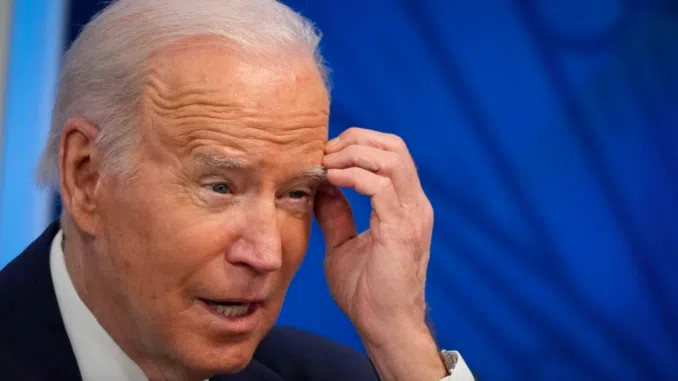Dementia impacting U.S. officials including Joe Biden, Mitch McConnell and Dianne Feinstein poses a threat to national security, according to a first-of-its-kind study by a Pentagon-funded think tank. The report, which was published earlier this spring, coincided with public mistakes by several prominent U.S. officials responsible for handling the nation’s most sensitive classified intelligence. These incidents prompted demands for resignations and sparked discussions about the aging leadership in Washington.
Sen. Mitch McConnell, who suffered a second freezing episode last month, enjoys the most privileged access to classified information of anyone in Congress as a member of the Gang of Eight congressional leadership. Ninety-year-old Sen. Dianne Feinstein, whose cognitive decline has seen her confused about how to vote and experiencing serious memory lapses — forgetting conversations and not recalling an absence of months — remains a member of the Senate Intelligence Committee.
The research, released in April by the National Security Research Division of the RAND Corporation, highlights a potential national security concern. It identifies individuals who have had access to classified information, whether currently or in the past, and subsequently develop dementia. The report suggests that these individuals could inadvertently reveal government secrets.
“Individuals who hold or held a security clearance and handled classified material could become a security threat if they develop dementia and unwittingly share government secrets,” the study says.
As mentioned in the study, it seems there is no other publicly accessible research on dementia, which encompasses cognitive function decline. This gap exists despite the fact that Americans are experiencing increased longevity. The researchers were able to identify several instances where senior intelligence officials succumbed to Alzheimer’s disease, a progressive brain disorder and the primary cause of dementia.
“As people live longer and retire later, challenges associated with cognitive impairment in the workplace will need to be addressed,” the report says. “Our limited research suggests this concern is an emerging security blind spot.”
The Intercept reports: While the study doesn’t mention any U.S. officials by name, its timing comes amid a simmering debate about gerontocracy: rule by the elderly. Following McConnell’s first freezing episode, in July, Google searches for the term “gerontocracy” spiked.
“The president called to check on me,” McConnell said when asked about the first episode. “I told him I got sandbagged,” he quipped, referring to President Joe Biden’s trip-and-fall incident during a June graduation ceremony at the U.S. Air Force Academy in Colorado, which sparked conservative criticisms about the 80-year-old’s own functioning.
While likely an attempt by McConnell at deflecting from his lapse, Biden’s age has emerged as a clear concern to voters, including Democrats. Sixty-nine percent of Democrats say Biden is “too old to effectively serve” another term, an Associated Press-NORC poll found last month. The findings were echoed by a CNN poll released last week that found that 67 percent of Democrats said the party should nominate someone else, with 49 percent directly mentioning Biden’s age as their biggest concern.
As commander in chief, the president is the nation’s ultimate classification authority, with the extraordinary power to classify and declassify information broadly. No other American has as privileged access to classified information as the president.
The U.S.’s current leadership is not only the oldest in history, but also the number of older people in Congress has grown dramatically in recent years. In 1981, only 4 percent of Congress was over the age of 70. By 2022, that number had spiked to 23 percent.
In 2017, Vox reported that a pharmacist had filled Alzheimer’s prescriptions for multiple members of Congress. With little incentive for an elected official to disclose such an illness, it is difficult to know just how pervasive the problem is. Feinstein’s retinue of staffers have for years sought to conceal her decline, having established a system to prevent her from walking the halls of Congress alone and risk having an unsupervised interaction with a reporter.
Despite the public controversy, there’s little indication that any officials will resign — or choose not to seek reelection.
After years of speculation about her retirement, 83-year-old Speaker Emerita Rep. Nancy Pelosi, D-Calif., stunned observers when she announced on Friday that she would run for reelection, seeking her 19th term.
